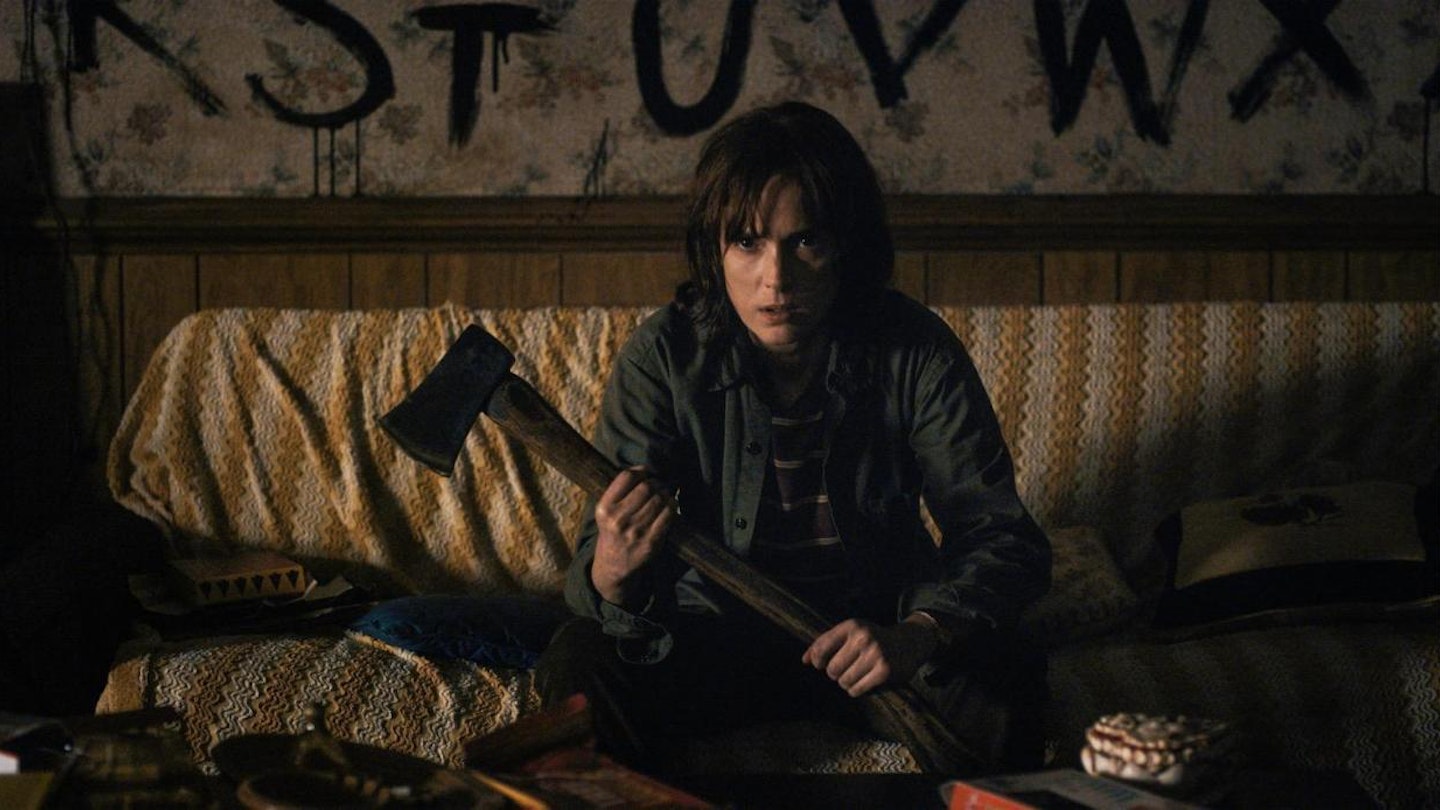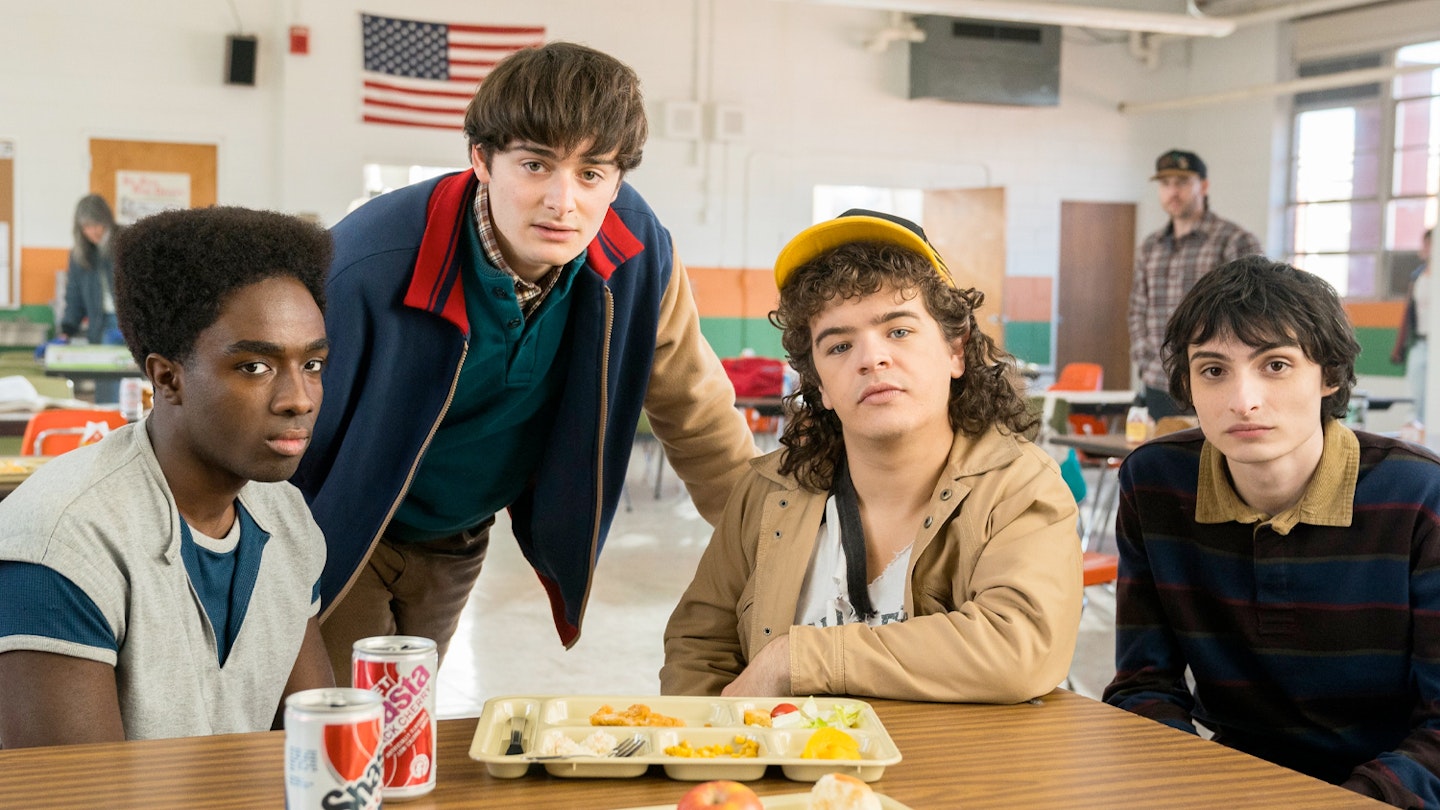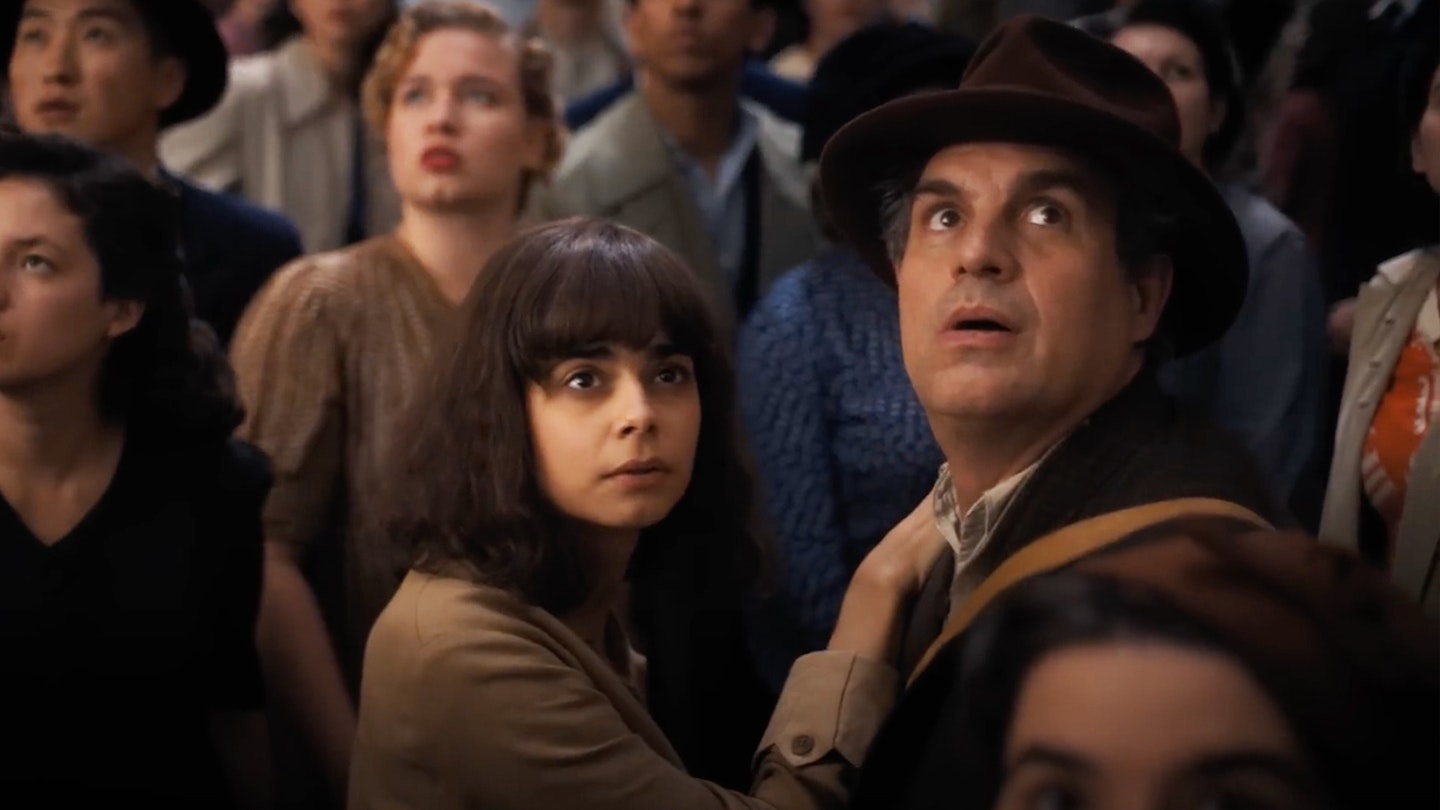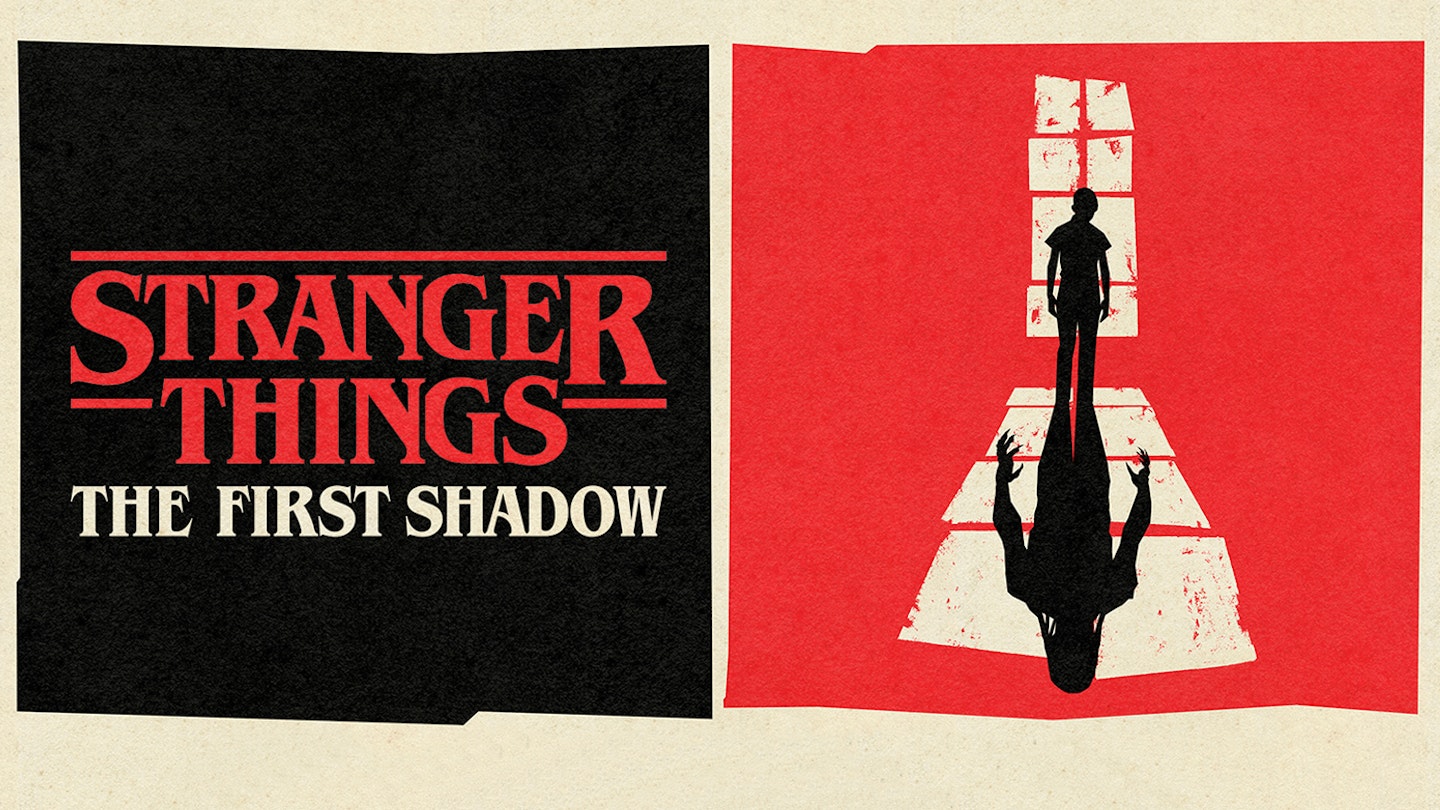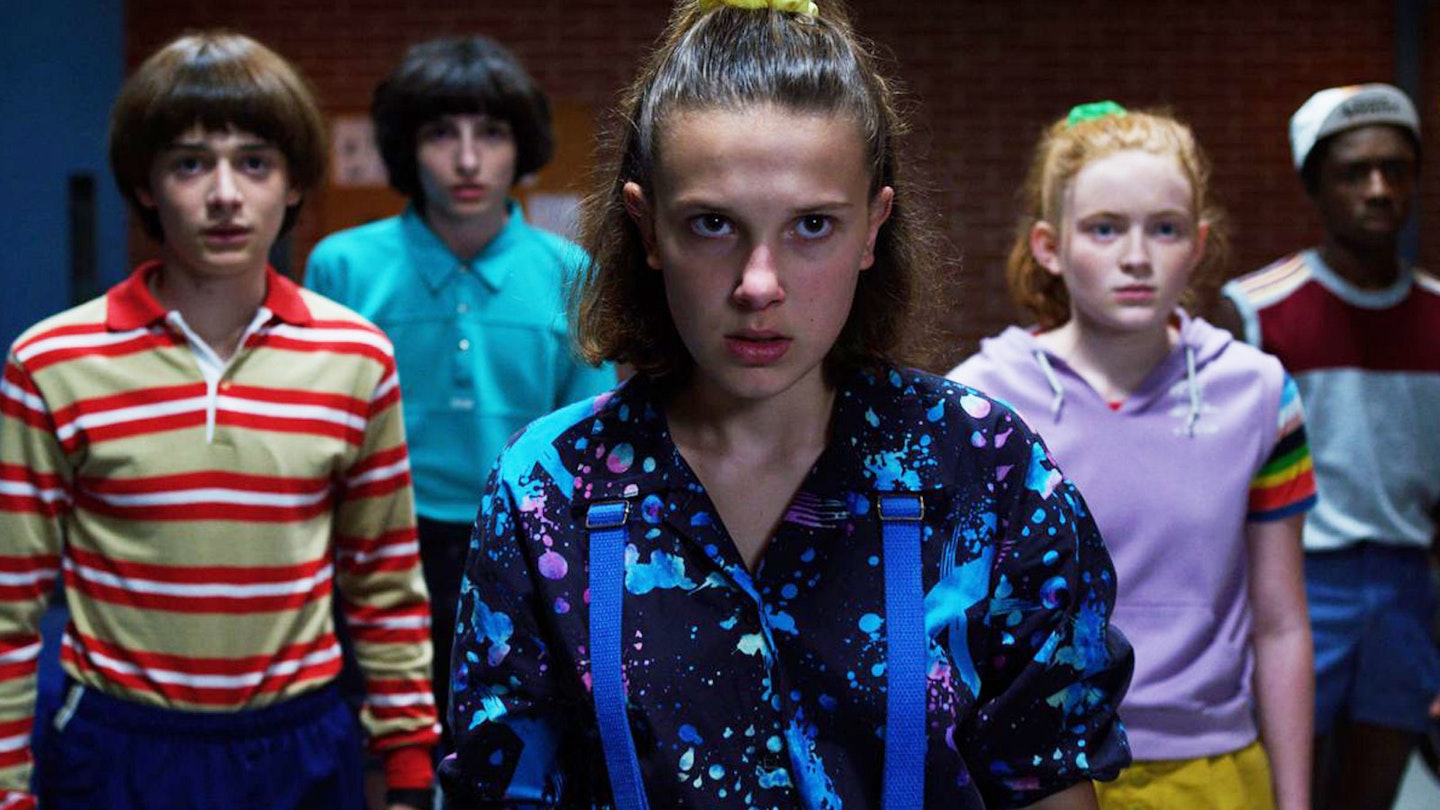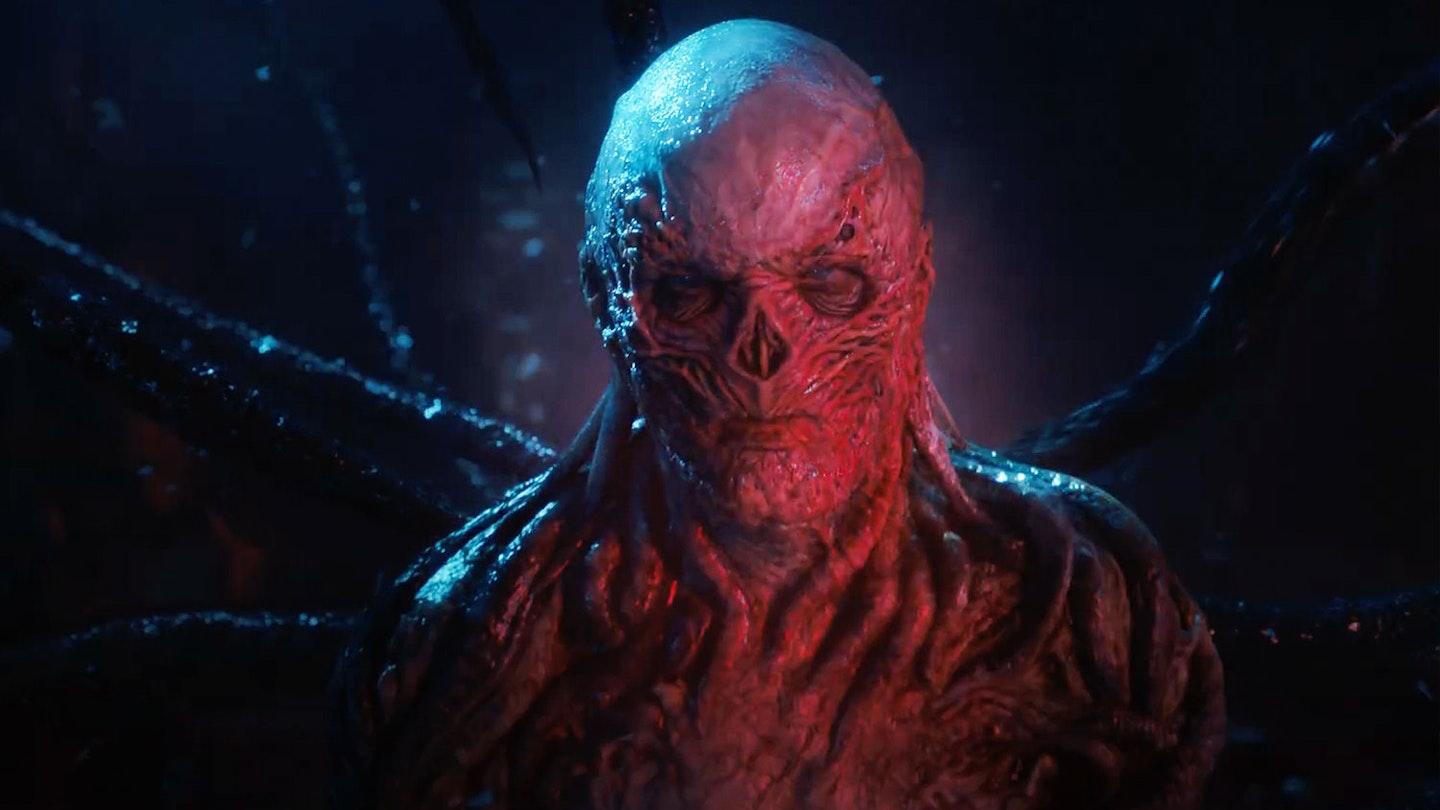If the iconic films of the era are to be believed, you couldn’t go outside your door in ’80s America without running into something supernatural — be it a stranded alien, an ancient Native American burial ground, or a demonic clown that turns into a spider. And okay, technically that last one’s neither a film nor from the ’80s (it’s a 1990 TV mini-series), but as the book on which it was based was released in ’86, we’re going to count it.
This mystical America is the starting point for Stranger Things, an eight-part Netflix original series by sibling team The Duffer Brothers (Matt and Ross), previously notable in the UK for claustrophobic bomb-shelter thriller Hidden (direct to video here) and writing the odd episode of Wayward Pines. Which is to say — not very notable. Still, they’ve conjured up an intriguing premise and given Winona Ryder her most high-profile lead role since that payment mishap in a Fifth Avenue department store. Pre-release anticipation was high.
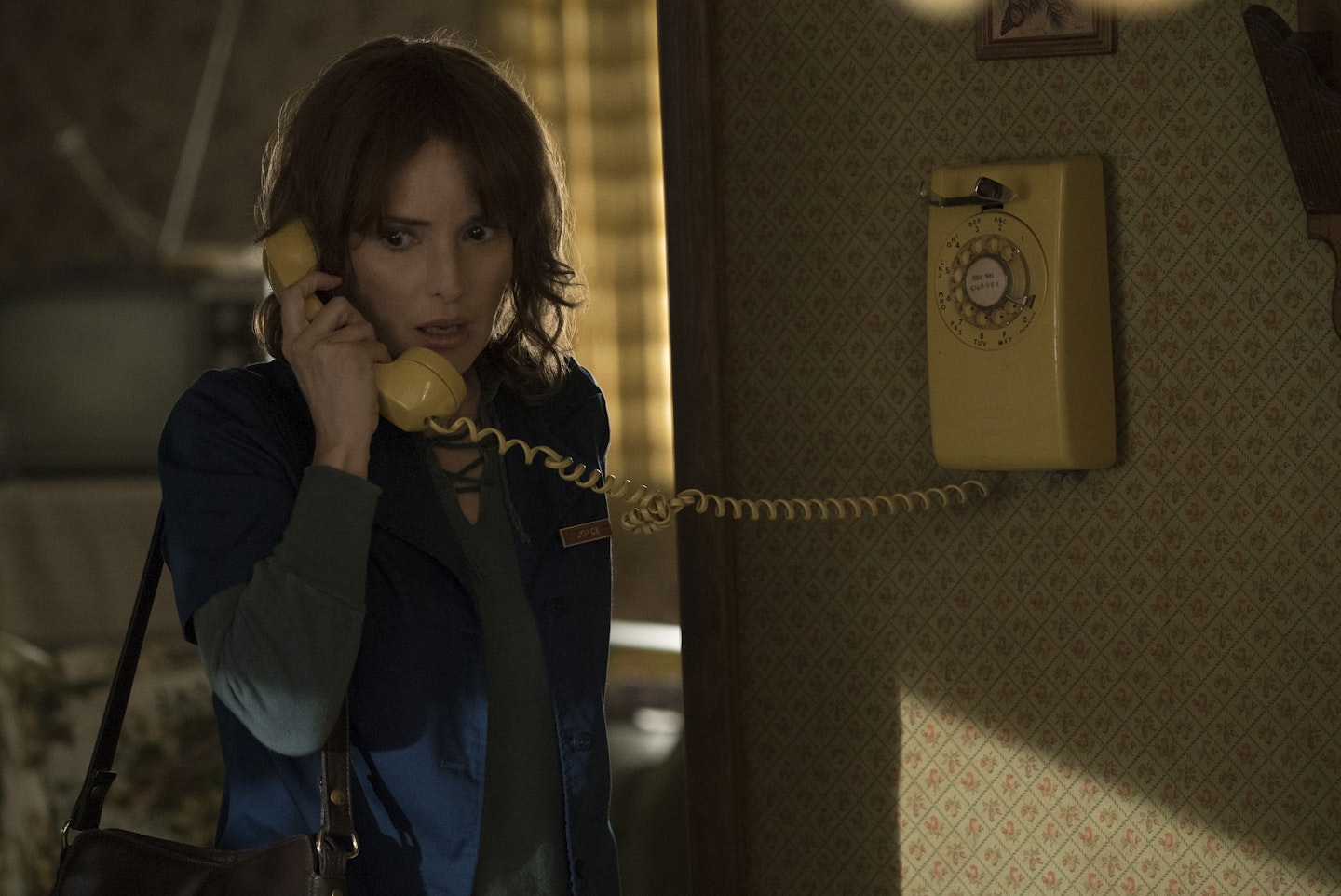
Ryder is Joyce Byers, the mother of Will (Noah Schnapp), a boy who goes missing one evening while cycling home from a friend’s house. It’s a mystery to the townsfolk what’s happened to him, but we’re less in the dark — a deliberately out-of-focus monster (for the first few episodes anyway) has escaped from a nearby government facility (run by the harmless-sounding but thoroughly evil US Department Of Energy). Will’s actual fate is never shown, though — raising the immediate possibility he’s not actually been killed. Something that gains traction as Joyce starts getting phone calls she’s sure are from Will, and lights begin to turn on and off — seemingly without cause.
As is standard, Hopper (Harbour), the chief of police, is initially sceptical when it’s first suggested he has a missing person’s case to deal with (“You wanna know the worst thing that’s ever happened here? An owl attacked Eleanor Gillespie’s head because it thought her hair was a nest”). Of course, he soon discovers it’s not the only untoward thing going on in town — including a death which looks like a suicide (that we know is actually the work of government agents), and sightings of a strange, short-haired runaway child which Hopper believes could be Will.
Again, we know it isn’t, because by the time Hopper’s on her trail, she’s already been discovered and taken in by Will’s friends — and revealed she has supernatural powers.
They name her Elle, short for Eleven — the number tattooed on her arm — and the four of them quickly take it upon themselves to find Will themselves.
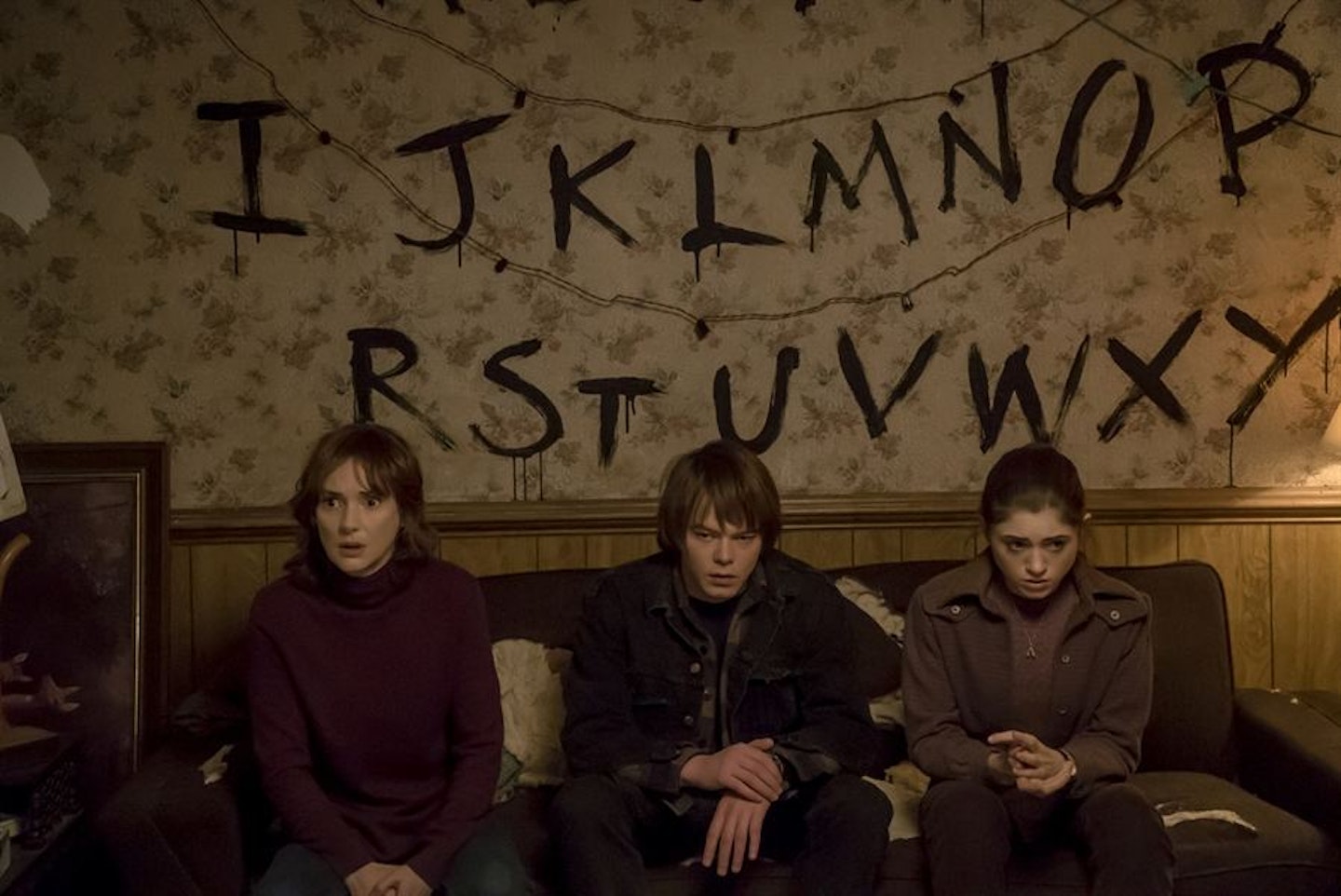
Despite Ryder’s first billing, it’s this group, led by Mike (Wolfhard) — or ‘Frogface’ to his bullies — who are the heart of the show and make it clear the type of coming-of-age adventure films The Duffer Brothers are honouring. They travel around on bikes, talk to each other over walkie-talkies and, at one point, take a journey along some railroad tracks. It’s clearly a show made with love for the pop culture of the era it’s set in — a The Thing poster can be spotted on a wall, He-Man And The Masters Of The Universe comes on the TV, characters talk about going to see Poltergeist and All The Right Moves at the cinema. One of the group even looks like Stand By Me-aged Wil Wheaton.
Where this approach falls down is when these references are no longer used as entertaining background details, but instead are swiped wholesale. E.T. The Extra-Terrestrial is the biggest victim — a subplot sees Mike trying to keep Elle hidden from his parents, and a later action sequence sees them attempting to escape government agents on their bikes — but a scene from Aliens gets lifted too, and at one point a character, marvelling at what’s unfolding, asks, “You read any Stephen King?” It would be a fair bet to say The Duffer Brothers have.
There are also too few surprises. We learn so much before the characters do that we watch them realising things long (sometimes multiple episodes) after we’ve worked out (or just been shown) what’s actually going on. But despite all this, there are enough human dramas, soapy teenage love triangles and nostalgia-coated kids’ adventures to make it an engaging eight episodes. The ’80s, man — dangerous yes, but what a time to be young.
READ MORE: Empire's interview with the creators of Stranger Things.
